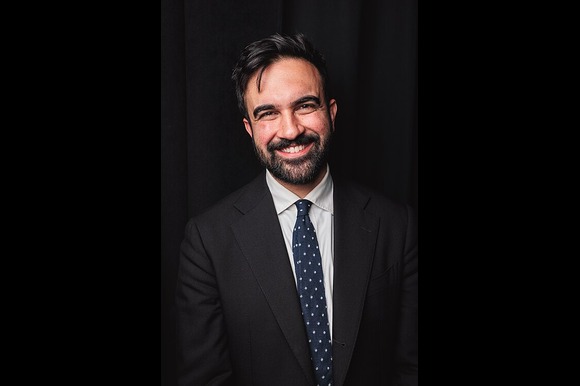In early November, democratic socialist Zohran Mamdani secured a landslide win in the New York City mayoral election, a result that reverberated across the United States political establishment and reinvigorated progressive movements nationwide.
The decisive victory marked a dramatic transformation for a campaign that, less than a year earlier, was polling at just 1 percent. Even his father, Mahmood Mamdani—an anthropology professor and postcolonial scholar at Columbia University—expressed surprise.
“He stunned both me and his mother,” Mahmood said in an interview with Al Jazeera Mushaber reporter Allaa Azzam. “We never imagined he would become the mayor of New York City. It was beyond anything we considered.”
Mahmood interpreted his son’s achievement as evidence of a broader political evolution in the country. Zohran’s campaign was rooted in affordability issues and included unwavering criticism of Israeli actions against Palestinians—long considered politically untouchable in mainstream US discourse.
Zohran now becomes the first Muslim mayor of the United States’ most populous city, further marking a historic milestone. Mahmood emphasised that his son’s deepest values shaped the campaign. “The priorities close to his heart were central to his political journey,” he said. “Social justice was one, and Palestinian rights another. He remained steadfast—never compromising or minimising either.”
A Family of Influence and Resilience
Zohran, the son of Mahmood and celebrated Indian American filmmaker Mira Nair, emerged as the mayoral frontrunner in June after dominating the Democratic primary, securing 56 percent of the vote and defeating former New York Governor Andrew Cuomo. When Cuomo ran as an independent in the November 4 election, Zohran once again prevailed decisively, receiving more than 50 percent of the vote to Cuomo’s 41 percent.
Mahmood acknowledged that his son’s rapid political rise was unexpected but believed his tenacity made it possible.
“We weren’t surprised by his determination,” he said. “I don’t believe he entered the race convinced he would win. He entered to make a statement.”
Mahmood attributed some of Zohran’s political capability to his upbringing. Rather than growing up in a conventional American nuclear household, he was raised in a multigenerational home—an experience that, according to Mahmood, shaped his empathy and interpersonal skills.
“He grew up surrounded by love and patience. He learned to be understanding towards those slower or different from his generation,” Mahmood reflected. “He was unlike many American children who rarely see their grandparents.”
A Surge in Voter Energy
Mahmood credited the election results to a widespread desire for change and increased political engagement.
“There is a mood of transformation. Young people turned out in unprecedented numbers,” he said. “Communities previously marginalised—Muslims, recent immigrants regardless of religion—felt empowered. They organised, they showed up, and they voted.”
Local New York media confirmed that this year’s mayoral election saw the highest turnout in more than five decades, with over two million ballots cast.
Mahmood believes his son’s tenure will ultimately test whether that energy translates into meaningful progress. “The US is known for low voter participation, often explained by supposed satisfaction with the system,” he said. “But participation is now rising—not because people are content, but because they’re starting to believe elections can become a tool for change. Zohran’s leadership will indicate whether that belief is justified.”
Taking on Powerful Opponents
Mahmood cautioned that his son faces formidable resistance from entrenched financial interests. “He’s confronting influential forces,” he said. “They attempted to derail him during the campaign and failed. That failure exposed the limits of money as a decisive political force.”
Although he noted that Zohran is not deeply familiar with the world of high-level power politics, he described him as a quick study.
“He may not yet fully understand that realm, but he learns fast—and he will.”
Unwavering Stance on Palestine
Zohran has consistently denounced Israel’s actions in Gaza as genocide—a position considered politically risky in the US, where opposition to Israel remains contentious. Despite criticism, he refused to soften his stance.
His views align with widespread human rights assessments, including statements from the United Nations. Mahmood noted that public sentiment in the US is shifting. A Pew Research Center poll from March showed that unfavourable views of Israel increased from 42 percent in 2022 to 53 percent in 2025, especially among Democrats but also among conservatives under 50.
The conflict has resulted in over 69,500 Palestinian deaths since October 2023, alongside escalating violence in the occupied West Bank. Mahmood said global awareness of the crisis has transformed public consciousness.
“The impact of Gaza extends beyond its borders,” he explained. “It marks a new chapter in world history. We’ve passed the point where people accept that Israel’s actions constitute self-defence.”






